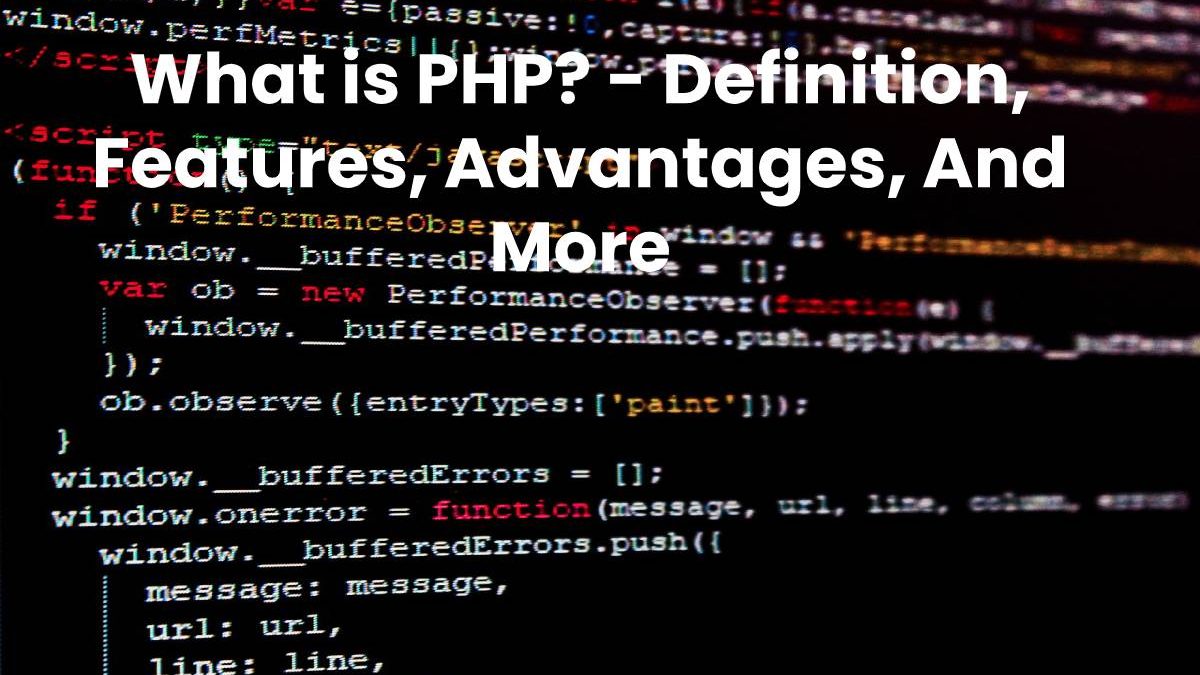Definition PHP
It is a popular scripting language primarily used for web development. In 1994 It was created by Rasmus Lerdorf; The PHP Group now produces the PHP reference implementation.
The PHP Hypertext Pre-processor programming language designed dynamic web pages by server-side programming scripts. The [PHP] language is always embedded within HTML and is generally related to the use of Linux servers.
Danish-Canadian programmer Rasmus Lerdorf designed it in 1994 based on the writing of a group of binary CGIs written in the C language. In the beginning, It composes of some macros that allowed working more quickly in the creation of webpages.
In 1995 Rasmus Lerdorf added the parser and called it PHP / F1 Version 2; it only recognized HTML text and some mSQL directives. After this date, the contribution to the code was public.
It is a free and cross-platform language. In addition to its ability to access many types of databases, it is also essential to highlight its ability to create dynamic pages, as well as the possibility of separating the design of the content of a website.
PHP is the solution for the construction of Webs regardless of the Database and the Web server, valid for any platform.
php1.gif The final objective is to achieve the integration of HTML pages with applications that run on the server as integrated processes, and not as a separate process, as was the case with the CGIs (Common Gateway Interface).
Also read: What is Ethereum? – Definition, Functions, And More
The PHP language has four features
1. Speed
PHP is not only fast when executed but does not generate delays in the machine, so it does not require substantial system resources. PHP integrates very well with other applications, especially under Unix environments.
2. Stability
PHP uses its resource management system and has a sophisticated method of variable management, forming a robust and stable system.
3. Security
It handles different levels of security, these can get configured from the .ini file
4. Simplicity
Users with experience in C and C ++ can use PHP quickly. It also has a wide range of libraries and allows the possibility of adding extensions. It will enable its application in multiple areas, such as encryption, graphics, XML, and others.
Additional advantages of PHP
1. It runs on (almost) any platform using the same source code,
2. The syntax of PHP is similar to that of C, so anyone with experience in C-style languages can quickly understand PHP.
3. It is fully expandable and modifiable. It is composed of the central system, a set of modules, and a variety of code extensions.
4. Many different interfaces for each type of server. It can run under Apache, IIS, AOLserver, Roxen, and THTTPD. Another alternative is to configure it as a CGI module.
5. It allows interaction with a large number of database engines such as MySQL, MS SQL, Oracle, Informix, PostgreSQL, etc.
6. It is Open Source (open source); this means that it does not depend on any commercial company and does not require licenses.
Also read: What is ERP? – Definition, Advantages, History, And More
Also You can find more helpful resources at thedigitaltrendz
Kamran Sharief
Related posts
Sidebar
Recent Posts
The Rise of Legal Tech Startups: What Law Firms Need to Know
Introduction The legal profession, often rooted in tradition and resistant to change, faces a technological revolution. Legal tech startups are…
Shiba Inu vs. Dogecoin: The Battle of the Meme Coins
In the realm of cryptocurrency, there has been an ongoing battle between two popular meme coins, Shiba Inu and Dogecoin….




Review What is PHP? – Definition, Features, Advantages, And More.